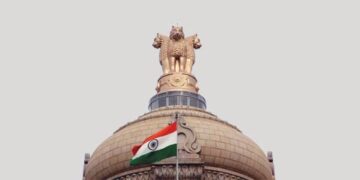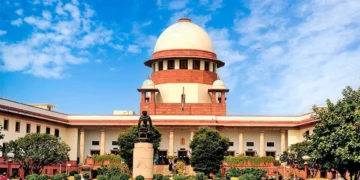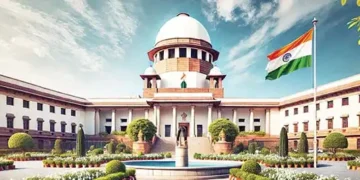Apurv Yash
IN the narrative of India’s constitutional democracy, the Fundamental Duties, as articulated under Article 51A in Part IV-A of the Constitution, occupy a significant position. These duties are not just constitutional mandates but also moral compasses directing citizens towards their responsibilities to the nation. The Government, under Prime Minister Narendra Modi’s leadership, has been pivotal in reinforcing these duties, thereby rejuvenating the spirit of Indian citizenship.
The essence of these Fundamental Duties ranges from respecting national symbols and institutions to fostering harmony and a scientific temperament. They emphasise that the rights and freedoms of citizens are entwined with their responsibilities towards the nation, its environment, and cultural heritage. These duties act as moral guides, steering citizens away from activities detrimental to national interests and nurturing a sense of unity and brotherhood.
In its quest to promote these Fundamental Duties, the Government has embarked on various initiatives and campaigns, integrating these duties into the public consciousness.
A prime example is the National Education Policy (NEP) 2020, which underscores the importance of incorporating Fundamental Duties into school curricula. This strategic move ensures that the young generation is not only equipped with knowledge but also imbued with a deep-rooted sense of responsibility towards their nation and society.
The Swachh Bharat Abhiyan, a nationwide cleanliness drive, resonates with the duty to protect and improve the natural environment. This initiative has gained massive participation and success, significantly instilling a sense of responsibility for public property and cleanliness among citizens. It exemplifies how a national campaign can transform into a people’s movement, reflecting the internalization of constitutional duties.
Furthermore, the Government’s push towards digitalisation and fostering innovation aligns with the duty to develop scientific temper and spirit of inquiry. The Digital India initiative has created an environment where technological advancements and scientific understanding are not just appreciated but also integrated into daily life. This approach has been instrumental in promoting rational thinking and a scientific outlook among the masses.
Additionally, the Government’s efforts in promoting national symbols through regular observances like Independence Day and Republic Day have been infused with renewed vigour. These observances reinforce respect for national symbols and the anthem, thus highlighting the first duty outlined in the Constitution.
However, the non-justiciable nature of these duties has often been a subject of debate. Critics argue that without legal enforceability, these duties may remain as mere moral obligations rather than actionable responsibilities.
The challenge lies in striking a balance between moral imperatives and enforceable legal standards, ensuring that these duties transcend beyond the realm of symbolism to become a lived reality for every citizen.
In conclusion, the Fundamental Duties, though non-justiciable, are the cornerstones of India’s constitutional ethos. The current government’s endeavours in promoting these duties are notable and have significantly contributed to reawakening the spirit of responsible citizenship. As India marches towards progress, it becomes imperative to continually remind ourselves of these duties, ensuring that our developmental journey is rooted in the values of unity, integrity, and respect for our diverse cultural heritage. The Government’s continued focus on these duties is vital in nurturing a more conscientious and harmonious society, paving the way for a robust and vibrant democracy.


























